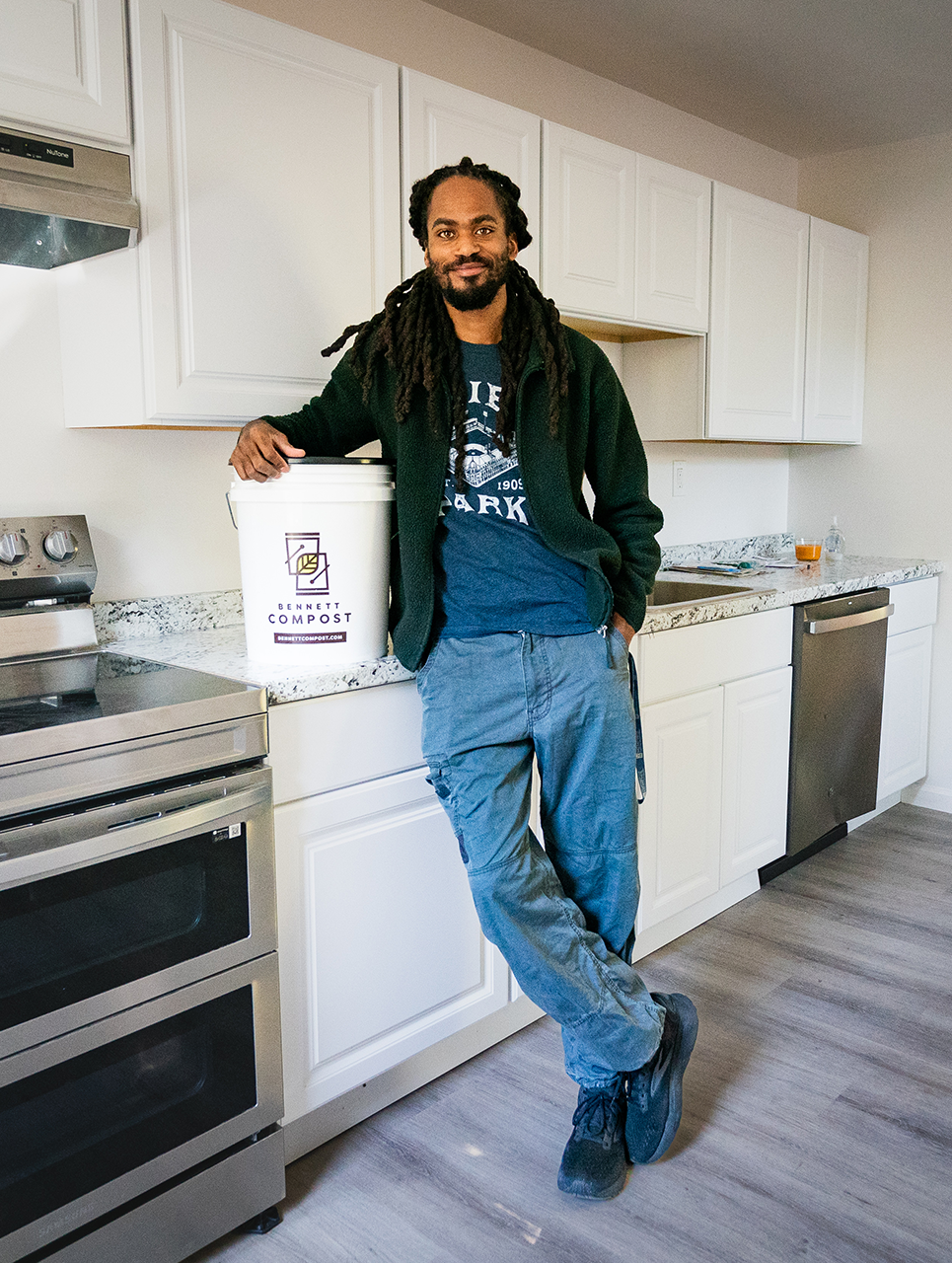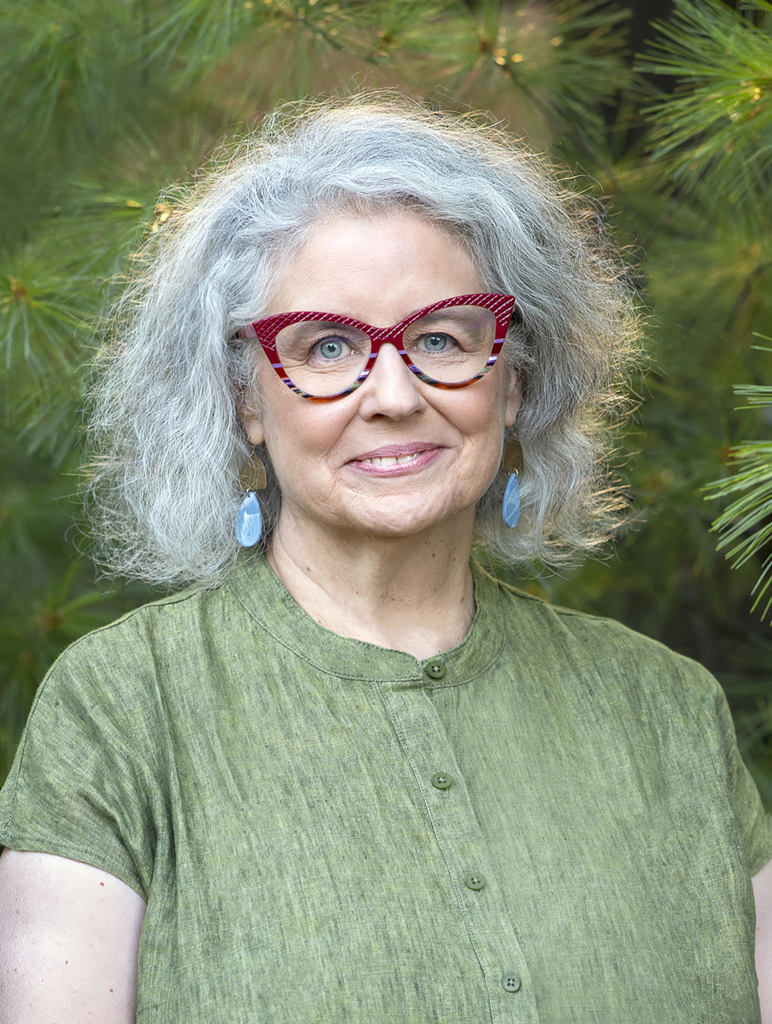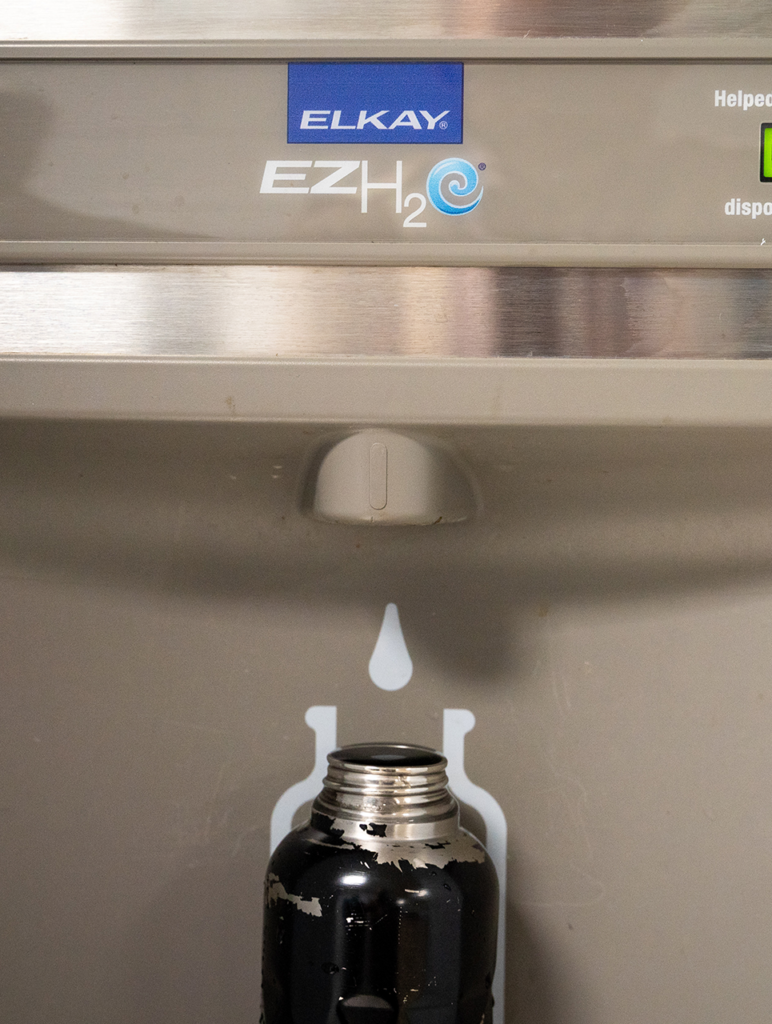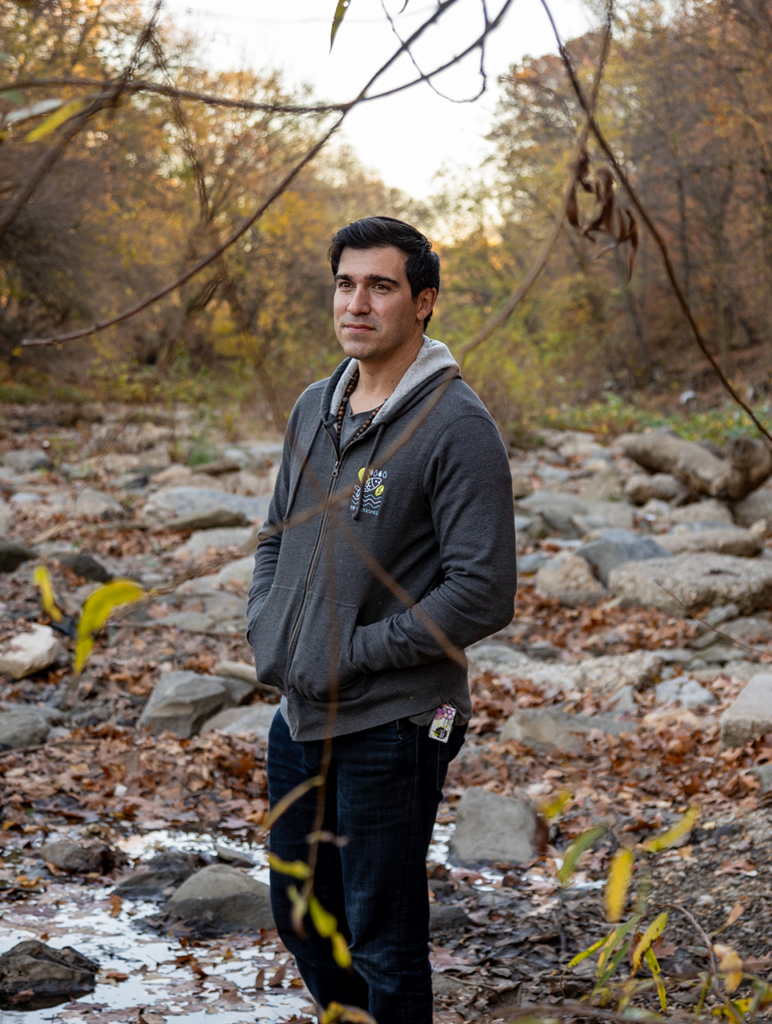A search for real estate under $200,000 in Philadelphia yields mostly fixer-uppers and condominiums. Marc Rowell’s mission with Deep Green Retrofit, launched in 2021, is to develop energy efficient, move-in ready housing for working-class families, putting affordability and sustainability ahead of personal profit.
Growing up in public housing in North Philadelphia, Rowell came to believe that the residents deserved better. That idea combined with his passion for sustainability led him to a study abroad program in Nepal and China, where, as an undergrad, he recognized the untapped potential of solar energy in the affordable housing market.
After returning home, Rowell trained with Solar States, a Certified B Corporation, in Philadelphia, becoming an installer for the company in 2019 before advancing to a project manager role. Micah Gold-Markel, founder of Solar States, recalls Rowell’s passion: “He was our top salesperson for a solid year.”
Rowell’s latest passion project — Deep Green Retrofit’s first fully renovated home — was listed for $170,000 in November, with a sale pending. The three-bedroom, one-bath West Philadelphia row house not only boasts solar panels and Energy Star appliances, but also comes with an orange bicycle and a one-year subscription to Bennett Compost.
On a house tour, Rowell’s enthusiasm builds as he descends the stairs into a clean, unfinished basement. “My favorite thing in the house is the heat pump water heater,” he says. “It uses less energy than some people’s toaster,” he explains, estimating that typical water heaters, in contrast, account for 10% of a home’s total energy costs.
To keep renovation costs down — and set future residents up for a lower cost of living — Rowell took advantage of tax credits and rebates from PECO and the local and federal governments. “Installing green appliances was a no-brainer,” he says.
“People in the development business usually want to double their money” rather than address the lack of affordable, sustainable housing stock, says Gold-Markel. “It’s impressive that [Rowell] says, ‘I’m going to solve THAT problem.’”
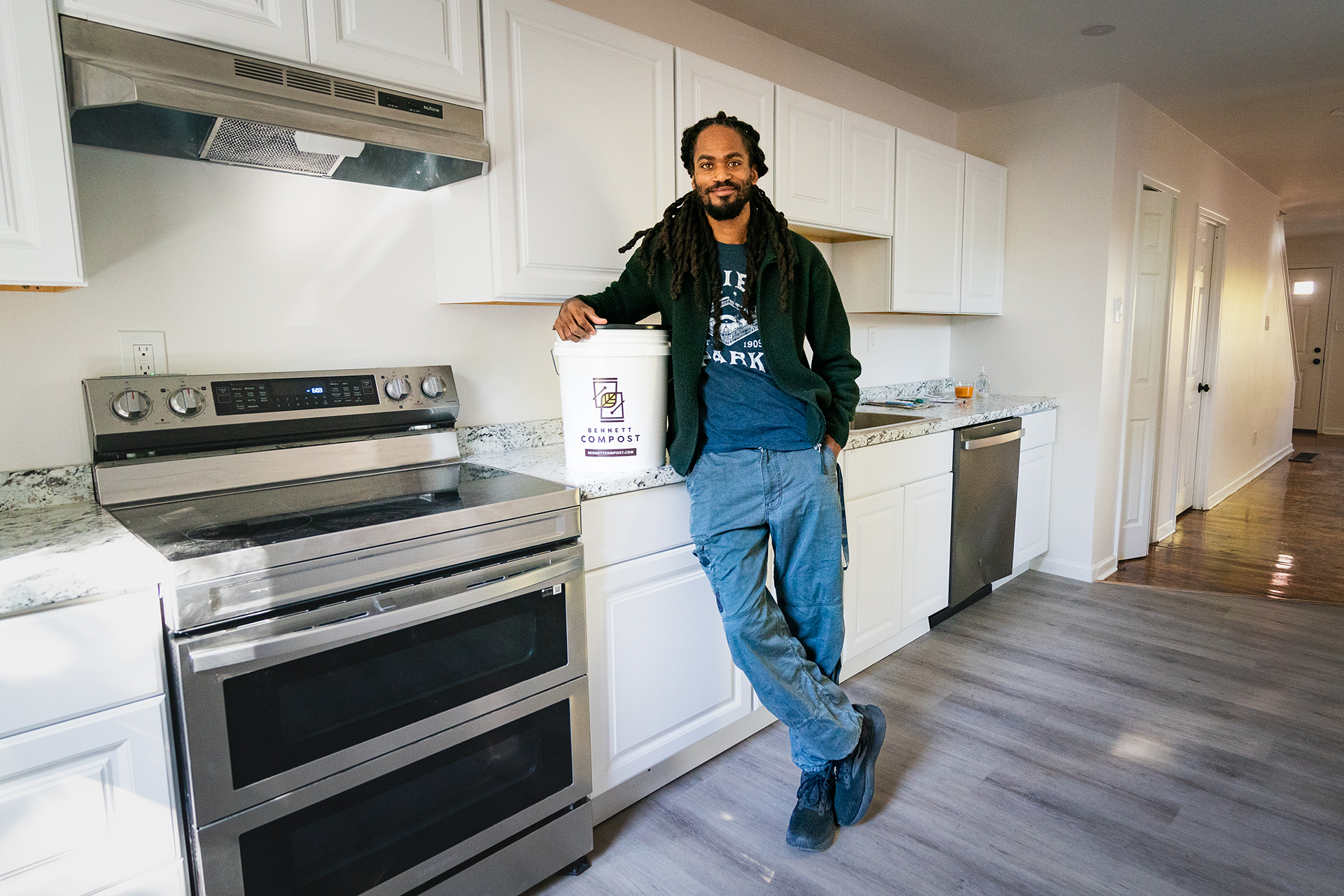
But completing the renovation has been fraught with challenges. The transfer of title from the Department of Housing and Urban Development (HUD) took two years. Then Rowell discovered that the house had faulty plumbing and was flooding, so he had to replace pipes and walls.
When the pandemic-induced supply-chain problems drove up the price of solar, Rowell says he “felt close to wrecking” the project. But he knew that for a house to stay affordable in the face of rising energy costs and property taxes, solar technology was a must. “I got it back on track when I stopped approaching it like it was an individual thing, and I started relying on people I know had expertise,” he says.
“I couldn’t have done it without the connections that I’ve made over the years,” he says, crediting the experiences he gained through the National Black MBA Association Collegiate Innovation Challenge, Ken Weinstein of Jumpstart Germantown, Tim Bennett of Bennett Compost and Gold-Markel for helping him bring the project to fruition.
Gold-Markel says it’s important for policymakers and community leaders to provide entrepreneurs like Rowell with springboards that set them up for success.
While retrofits are the core of Rowell’s work, he eventually would like to try his hand at new construction. For now, the challenges he has set for himself include meeting more stringent building goals, such as those needed for the Home Energy Rating System (HERS), Energy Star certification and ultimately the Living Building Challenge standards. He says that although each of these comes with increasingly challenging benchmarks, building to these specifications would lock in long-term affordability for homeowners.


